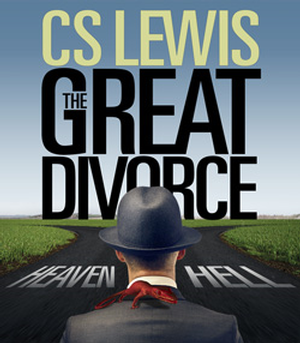I’m just a little behind, I know. But sitting next to me right now is a great book called “Wonderbook: The Illustrated Guide to Creating Imaginative Fiction”. In there a writer named Deserina Boskovich says this about the ending of the Dark Tower series (so, SPOILERS! from here on out):
It took courage to write that ending, I think. It took nerve to carry the story through to its inevitable conclusion. The top of the tower was always meant to be empty [this is in reference to the moment when the protagonist reaches the titular Dark Tower, and finds none of the answers he is looking for, but only his own destiny staring back at him – a paraphrase of Boskovich’s words]. There is no god, there are no final answers; there is only us, and our endless quest. But our search for answers – it’s how we save ourselves. It’s how we save the world.
Look: I know this doesn’t sound very superversive, but in theory, I have no issue with nihilistic novels, and I say this because there really are good ones! I’m thinking in particular of “The Hitchhiker’s Guide to the Galaxy”, of which the clear message is, “There is no meaning to anything, and nothingness is all you have to look forward to. The only way to cope with this is to laugh about the absurdity of it all.” And laugh we do. “Hitchhiker’s” is a riot.
(Bear with me – I’m coming full circle.)
Even so, people seem to have a problem with the ending of “Mostly Harmless”, where Adams kills off all of the main characters but Zaphod by destroying every incarnation of Earth in all possible parallel universes. They shouldn’t, because it’s a perfectly logical extrapolation of the series. How else could it possibly end?
But I get it. When you read a book, you want what happens to the main characters to mean something; you feel cheated when they don’t. That’s why nihilist literature is very, very hard to pull off well. It’s also why the the third book, “Life, the Universe, and Everything”, is probably my favorite – it’s the closest to having a traditional, if zany, plot.
And King’s brand of zen koan nihilism, if we are to trust Boskovich’s characterization of it, is actually dumber than Adams’. Adams, at least, was honest enough to realize that there’s no “saving” in nihilism. The quest doesn’t matter. Nothing matters. And King, by having the meaning of the book be “the search” is opening up a very simple question: If the whole meaning of the book is “the search”, but the answer to “the search” is that “the search” is the meaning…what are you searching for?
 C.S. Lewis, as always, put it far more succinctly than I can. From “The Great Divorce”:
C.S. Lewis, as always, put it far more succinctly than I can. From “The Great Divorce”:
For me there is no such thing as a final answer. The free wind of inquiry must always continue to blow through the mind, must it not? Trove all things’ . . . to travel hopefully is better than to arrive.”
“If that were true, and known to be true, how could anyone travel hopefully? There would be nothing to hope for.”
The search simply can’t be the answer. It’s like asking wet to be dry (another “Great Divorce” reference). If you don’t think there’s an answer, there’s nothing to search for; and if you’ve found the answer, there’s no reason to search it. It’s simply, almost tautologically, self-contradictory.
As for whether or not her characterization is accurate, this is coming from a fan of the novel. If this is how people who LIKE it describe it, well…consider me officially not interested.
